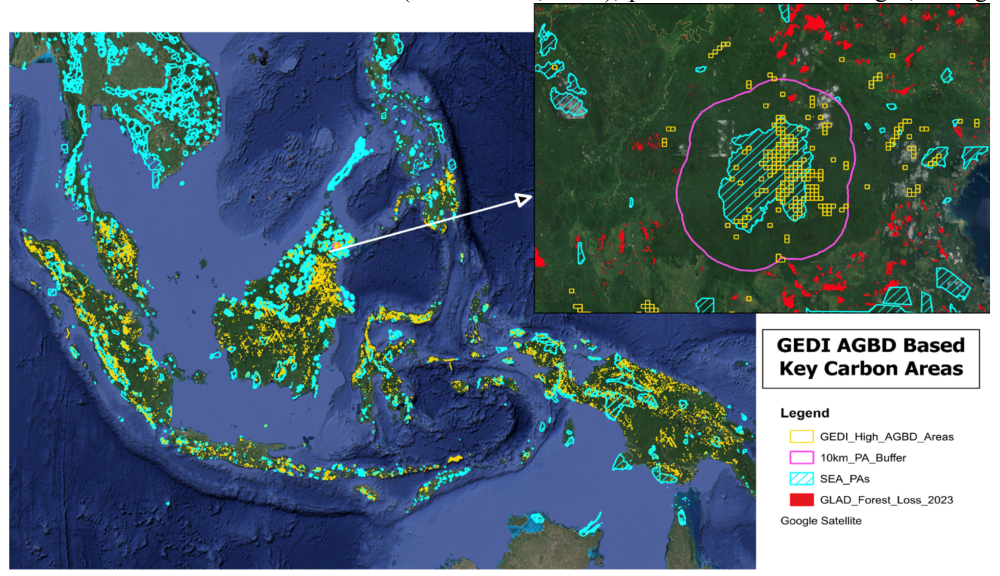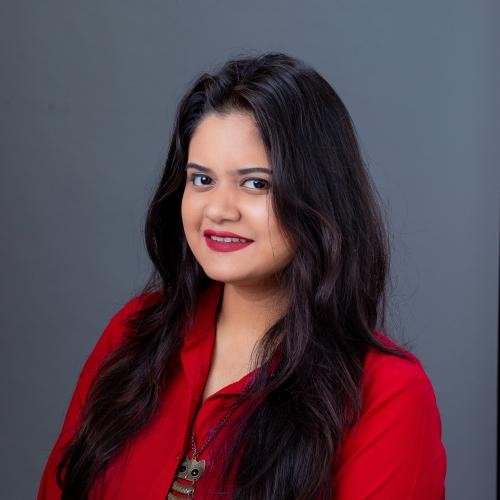GEOG Student Selected as NASA’s FINESST to Study Southeast Asia Conservation
Ph.D. student Paromita Basak, guided by Associate Professor Laura Duncanson as principal investigator, is leading research to uncover critical 'co-benefit' zones that are essential for both climate resilience and biodiversity conservation.
NASA’s Future Investigators in NASA Earth and Space Science and Technology (FINESST) program has awarded a $150,000 research grant to GEOG Ph.D. student Paromita Basak. Her project, titled “Analyzing Spatial Co-Benefits of Carbon and Structural Diversity in Southeast Asia with GEDI,” was one of only 55 funded proposals out of 431 submissions in this year’s Earth Science Division of FINESST. Associate Professor Laura Duncanson, Basak’s advisor, serves as the principal investigator (PI) of this research, while Basak will be named as the Future Investigator (FI).
“I am very happy and proud of Paromita for this exciting achievement. It was a very competitive year for these fellowships, and wonderful to see her experience and dedication to research recognized by NASA” said Duncanson.
The research focuses on identifying key areas in Southeast Asia (SEA) that offer significant carbon storage and biodiversity benefits, termed as "co-benefit" zones. These zones are crucial for efforts to combat climate change and preserve biodiversity. The study will also evaluate the impact of human activities on these zones and explore their potential for conservation.
"Earth's land biomes play a vital role in storing carbon and supporting biodiversity," said Basak. "Our research will discover key areas in SEA that offer these co-benefits and assess their vulnerability to human activities. The goal is to identify regions that should be prioritized for protection to support global conservation targets."

Basak’s passion for forest conservation was shaped by her upbringing in the forested regions of Bangladesh, where her botanist father introduced her to the value of natural ecosystems. From a young age, she understood the indispensable benefits that plants provide, fueling her passion for forest conservation. This passion only grew as she pursued her Master’s in Environmental Sciences and Policy at Central European University(CEU), where she realized the critical need for research that not only advances scientific understanding but also emphasizes practical application. This realization guided her PhD work at UMD’s Department of Geographical Sciences, where she collaborated with her advisor, Laura Duncanson, who inspired and helped her develop research aimed at protecting key carbon and biodiversity-rich areas across the globe, highlighting each of the ecoregions.
“Receiving the NASA FINESST funding is an incredible honor and a significant milestone in my academic journey,” said Basak. “This support not only validates the importance of our research but also provides the resources necessary to push the boundaries of what we know about carbon storage and biodiversity protection. I am excited about the opportunities this funding brings, enabling me to contribute meaningful insights that could have a lasting impact on global conservation efforts.”
The FINESST funding for this ongoing research will begin in January 2025 and is projected to last three years. In addition to identifying priority areas for protection in Southeast Asia, the findings aim to support global targets such as conserving 30% of land by 2030.
Published on Mon, 11/11/2024 - 14:35


